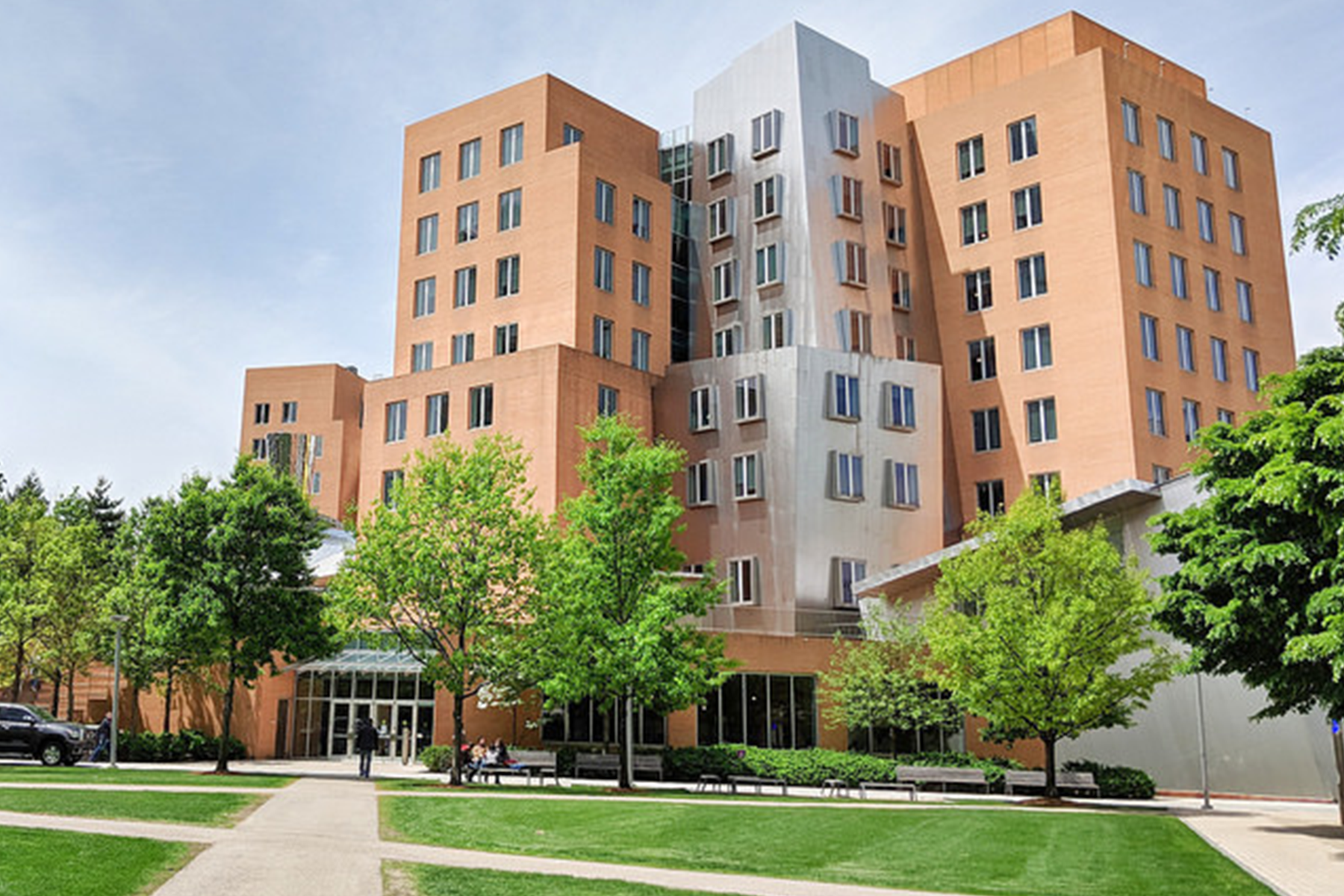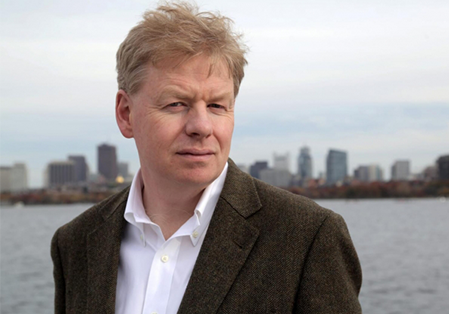Professor Russ Tedrake is the Toyota Professor of Electrical Engineering and Computer Science, Aeronautics and Astronautics, and Mechanical Engineering at MIT, the Director of the Center for Robotics at the Computer Science and Artificial Intelligence Lab, and the leader of Team MIT's entry in the DARPA Robotics Challenge. Professor Tedrake is also the Vice President of Robotics Research at the Toyota Research Institute. He is a recipient of the 2023 MIT Teaching with Digital Technology Award, the 2021 Jamieson Teaching Award, the NSF CAREER Award, the MIT Jerome Saltzer Award for undergraduate teaching, the DARPA Young Faculty Award in Mathematics, the 2012 Ruth and Joel Spira Teaching Award, and was named a Microsoft Research New Faculty Fellow.
Tommy Cohn is a PhD student at CSAIL focusing on robot motion planning. He’s been able to draw on his background in advanced, theoretical mathematics to find creative solutions to challenging research questions.
Abstract: In order for a bimanual robot to manipulate an object that is held by both hands, it must construct motion plans such that the transformation between its end effectors remains fixed. This amounts to complicated nonlinear equality constraints in the configuration space, which are difficult for trajectory optimizers. In addition, the set of feasible configurations becomes a measure zero set, which presents a challenge to sampling-based motion planners. We leverage an analytic solution to the inverse kinematics problem to parametrize the configuration space, resulting in a lower-dimensional representation where the set of valid configurations has positive measure. We describe how to use this parametrization with existing algorithms for motion planning, including sampling-based approaches, trajectory optimizers, and techniques that plan through convex inner-approximations of collision-free space.
Max Simchowitz is a postdoctoral researcher in the Robot Locomotion Group at MIT CSAIL. He studies the theoretical foundations of machine learning problems with a sequential or dynamical component; he currently focuses on robotics and out-of-distribution learning, and with past work ranging broadly across control, reinforcement learning, optimization and algorithmic fairness. He received his PhD from University of California, Berkeley in 2021 under Ben Recht and Michael I. Jordan, and his work has been recognized with an ICML 2018 Best Paper Award, ICML 2022 Outstanding Paper Award, and RSS 2023 Best Paper Finalist designation.
Abstract: We propose a theoretical framework for studying behavior cloning of complex expert demonstrations using generative modeling. Our framework invokes low-level controllers - either learned or implicit in position-command control - to stabilize imitation around expert demonstrations. We show that with (a) a suitable low-level stability guarantee and (b) a powerful enough generative model as our imitation learner, pure supervised behavior cloning can generate trajectories matching the per-time step distribution of essentially arbitrary expert trajectories in an optimal transport cost. Our analysis relies on a stochastic continuity property of the learned policy we call "total variation continuity" (TVC). We then show that TVC can be ensured with minimal degradation of accuracy by combining a popular data-augmentation regimen with a novel algorithmic trick: adding augmentation noise at execution time. We instantiate our guarantees for policies parameterized by diffusion models and prove that if the learner accurately estimates the score of the (noise-augmented) expert policy, then the distribution of imitator trajectories is close to the demonstrator distribution in a natural optimal transport distance. Our analysis constructs intricate couplings between noise-augmented trajectories, a technique that may be of independent interest. We conclude by empirically validating our algorithmic recommendations, and discussing implications for future research directions for better behavior cloning with generative modeling.
H.J. Terry Suh is a Ph.D. candidate at the Robot Locomotion Group (RLG) at CSAIL, MIT, advised by Professor Russ Tedrake. His research focuses on planning, control, and learning for contact-rich manipulation, where he currently works on gradient-based reinforcement learning with differentiable simulators. Terry received his B.S. degree at Caltech in 2019, and previously spent summers at Boston Dynamics AI Institute, Toyota Research Institute, as well as NASA Jet Propulsion Laboratory. His research has received the 2022 ICML Outstanding Paper Award, and the Best Paper of the Year Award from IEEE RAS TC on Model-Based Optimization.
Abstract: The empirical success of reinforcement learning (RL) in contact-rich manipulation leaves much to be understood from a model-based perspective, where the key difficulties are often attributed to 1) the explosion of contact modes, 2) stiff, nonsmooth contact dynamics and the resulting exploding/discontinuous gradients, and 3) the nonconvexity of the planning problem. The stochastic nature of RL addresses 1) and 2) by effectively sampling and averaging the contact modes. On the other hand, model-based methods have tackled the same challenges by smoothing contact dynamics analytically. Our first contribution is to establish the theoretical equivalence of the two smoothing schemes for simple systems, and provide qualitative and empirical equivalence on several complex examples. In order to further alleviate 2), our second contribution is a convex, differentiable, and quasi-dynamic formulation of contact dynamics, which is amenable to both smoothing schemes, and has proven to be highly effective for contact-rich planning. Our final contribution resolves 3), where we show that classical sampling-based motion planning algorithms can be effective in global planning when contact modes are abstracted via smoothing. Applying our method on several challenging contact-rich manipulation tasks, we demonstrate that efficient model-based motion planning can achieve results comparable to RL, but with dramatically less computation.
Glen Chou is a postdoc at MIT CSAIL working with Professor Russ Tedrake on full-stack guarantees - from raw sensors and human input all the way to low-level control - for safe and reliable robotic autonomy. Previously, Glen received an M.S. and Ph.D. in Electrical and Computer Engineering from the University of Michigan in 2019 and 2022, respectively, where he was advised by Necmiye Ozay and Dmitry Berenson. Prior to that, he earned dual B.S. degrees in Electrical Engineering and Computer Science and Mechanical Engineering from the University of California, Berkeley in 2017. Glen is a recipient of the National Defense Science and Engineering Graduate (NDSEG) fellowship and a 2022 Robotics: Science and Systems Pioneer.
Abstract: We present a method for synthesizing dynamic, reduced-order output-feedback polynomial control policies for control-affine nonlinear systems which guarantees runtime stability to a goal state, when using visual observations and a learned perception module in the feedback control loop. We leverage Lyapunov analysis to formulate the problem of synthesizing such policies. This problem is nonconvex in the policy parameters and the Lyapunov function that is used to prove the stability of the policy. To solve this problem approximately, we propose two approaches: the first solves a sequence of sum-of-squares optimization problems to iteratively improve a policy which is provably-stable by construction, while the second directly performs gradient-based optimization on the parameters of the polynomial policy, and its closed-loop stability is verified a posteriori. We extend our approach to provide stability guarantees in the presence of observation noise, which realistically arises due to errors in the learned perception module. We evaluate our approach on several underactuated nonlinear systems, including pendula and quadrotors, showing that our guarantees translate to empirical stability when controlling these systems from images, while baseline approaches can fail to reliably stabilize the system.


